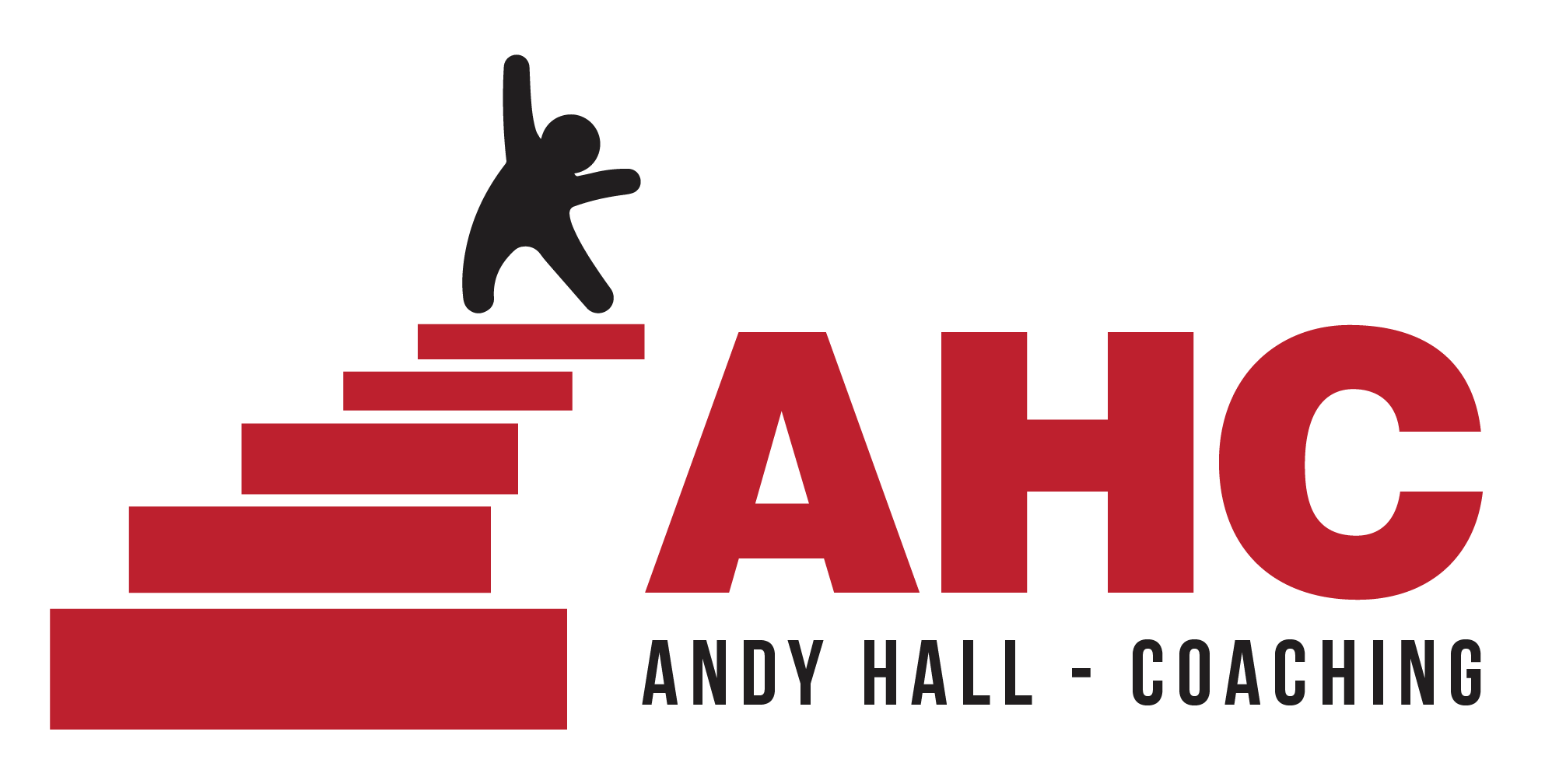I am dedicated to empowering change, igniting passion, and achieving outstanding results
for individuals, teams & organisations.

Thoughts to Inspire

Are You Happy in Your Job?
Job dissatisfaction often stifles creativity and innovation.
Job satisfaction is a two-way street that influences both the individual and the organisation. When you are not content with your work, it can have several negative implications for your job and the workplace.
Unhappiness in your job can lead to reduced productivity. When you're not engaged and motivated, tasks often take longer to complete, and the quality of your work may suffer. Employees who are dissatisfied with their work are more likely to seek employment elsewhere. High turnover rates can be costly for employers in terms of recruitment, training, and lost institutional knowledge. A negative workplace culture can be contagious. Your attitude and morale can have a ripple effect on your colleagues. Unhappiness at work can lead to a toxic workplace culture, impacting team dynamics and collaboration.
Job dissatisfaction often stifles creativity and innovation. Employees who are unhappy may be less likely to suggest improvements or take risks, hindering an organisation's ability to adapt and thrive. Unhappy employees are more likely to take sick days or other forms of leave. Frequent absenteeism can disrupt workflow and increase the workload on other team members.
If your job involves interacting with customers or clients, your unhappiness can negatively impact those relationships. Dissatisfied employees may not provide the level of service or engagement that customers expect. When you are unhappy in your job, you may miss out on opportunities for advancement, skill development, and new experiences that could contribute to your long-term career growth.
It's essential to recognise that job satisfaction is not just an individual concern but a critical aspect of organisational success. Employers are increasingly realising the importance of fostering a positive work environment and supporting the well-being of their employees. Therefore, if you're unhappy in your job, it's in your organisation's best interest to address the underlying issues and find ways to improve your satisfaction.
According to GoodFirms, research shows 56.68% of employees worldwide are satisfied with their jobs. GoodFirms research shows that more than half the employees are satisfied with their current jobs, while 30.15% are unhappy. In addition, around 13.17% of respondents were unsure or neutral about their current position.(Source: GoodFirms)
Further data from the Society for Human Resource Management (SHRM) indicated that job satisfaction in the United States had been on a decline. Factors such as limited growth opportunities, poor work-life balance, and inadequate recognition have contributed to this trend. This downward spiral in job satisfaction has far-reaching consequences, affecting both the individual's well-being and the organisation's performance.
How Coaching Can Help
Coaching has emerged as a powerful tool to address the issues of job satisfaction. It can empower individuals to change their perspective and develop a more positive mindset towards their work. Here are a few ways coaching can help:
Self-awareness: A good coach can help you identify your values, strengths, and interests. This self-awareness can help you align your career choices with your personal preferences, leading to greater job satisfaction.
Goal setting: Coaches can assist you in setting meaningful, achievable career goals. Having clear objectives can provide a sense of purpose and motivation, which are key drivers of job satisfaction.
Skill development: Coaching can help you acquire new skills and strengthen existing ones, making you more competitive and confident in your role. Greater competence often leads to increased job satisfaction.
Stress management: Coaches can guide you in managing workplace stress and maintaining a healthy work-life balance. Reducing stress is crucial for finding happiness in your job.
Resilience building: Coaching can equip you with the tools to bounce back from setbacks and adapt to changing work conditions, fostering a positive outlook.
Working with a coach can be a transformative experience that not only improves your job satisfaction but also contributes to your personal and professional growth. The support and tools provided by a coach can empower you to make positive changes in your career, fostering a happier and more fulfilling work life.
If you're eager to take the first step toward enhancing your job satisfaction and unlocking your full career potential, consider partnering with a coach.
Contact me for more information and to explore how coaching can empower you to find happiness in your job. Don't let job dissatisfaction hold you back, reach out today to start your journey toward a more fulfilling and satisfying career. Your happiness at work is within your reach, and we're here to help you achieve it.

Are You Happy in Your Job?
Job dissatisfaction often stifles creativity and innovation.
Job satisfaction is a two-way street that influences both the individual and the organisation. When you are not content with your work, it can have several negative implications for your job and the workplace.
Unhappiness in your job can lead to reduced productivity. When you're not engaged and motivated, tasks often take longer to complete, and the quality of your work may suffer. Employees who are dissatisfied with their work are more likely to seek employment elsewhere. High turnover rates can be costly for employers in terms of recruitment, training, and lost institutional knowledge. A negative workplace culture can be contagious. Your attitude and morale can have a ripple effect on your colleagues. Unhappiness at work can lead to a toxic workplace culture, impacting team dynamics and collaboration.
Job dissatisfaction often stifles creativity and innovation. Employees who are unhappy may be less likely to suggest improvements or take risks, hindering an organisation's ability to adapt and thrive. Unhappy employees are more likely to take sick days or other forms of leave. Frequent absenteeism can disrupt workflow and increase the workload on other team members.
If your job involves interacting with customers or clients, your unhappiness can negatively impact those relationships. Dissatisfied employees may not provide the level of service or engagement that customers expect. When you are unhappy in your job, you may miss out on opportunities for advancement, skill development, and new experiences that could contribute to your long-term career growth.
It's essential to recognise that job satisfaction is not just an individual concern but a critical aspect of organisational success. Employers are increasingly realising the importance of fostering a positive work environment and supporting the well-being of their employees. Therefore, if you're unhappy in your job, it's in your organisation's best interest to address the underlying issues and find ways to improve your satisfaction.
According to GoodFirms, research shows 56.68% of employees worldwide are satisfied with their jobs. GoodFirms research shows that more than half the employees are satisfied with their current jobs, while 30.15% are unhappy. In addition, around 13.17% of respondents were unsure or neutral about their current position.(Source: GoodFirms)
Further data from the Society for Human Resource Management (SHRM) indicated that job satisfaction in the United States had been on a decline. Factors such as limited growth opportunities, poor work-life balance, and inadequate recognition have contributed to this trend. This downward spiral in job satisfaction has far-reaching consequences, affecting both the individual's well-being and the organisation's performance.
How Coaching Can Help
Coaching has emerged as a powerful tool to address the issues of job satisfaction. It can empower individuals to change their perspective and develop a more positive mindset towards their work. Here are a few ways coaching can help:
Self-awareness: A good coach can help you identify your values, strengths, and interests. This self-awareness can help you align your career choices with your personal preferences, leading to greater job satisfaction.
Goal setting: Coaches can assist you in setting meaningful, achievable career goals. Having clear objectives can provide a sense of purpose and motivation, which are key drivers of job satisfaction.
Skill development: Coaching can help you acquire new skills and strengthen existing ones, making you more competitive and confident in your role. Greater competence often leads to increased job satisfaction.
Stress management: Coaches can guide you in managing workplace stress and maintaining a healthy work-life balance. Reducing stress is crucial for finding happiness in your job.
Resilience building: Coaching can equip you with the tools to bounce back from setbacks and adapt to changing work conditions, fostering a positive outlook.
Working with a coach can be a transformative experience that not only improves your job satisfaction but also contributes to your personal and professional growth. The support and tools provided by a coach can empower you to make positive changes in your career, fostering a happier and more fulfilling work life.
If you're eager to take the first step toward enhancing your job satisfaction and unlocking your full career potential, consider partnering with a coach.
Contact me for more information and to explore how coaching can empower you to find happiness in your job. Don't let job dissatisfaction hold you back, reach out today to start your journey toward a more fulfilling and satisfying career. Your happiness at work is within your reach, and we're here to help you achieve it.
I would love to hear from you!
FAQS
How does life coaching differ from therapy?
While both life coaching and therapy aim to support personal growth, they have distinct approaches. Therapy typically focuses on addressing past traumas, emotional healing, and diagnosing mental health conditions. On the other hand, life coaching is forward-focused, centered around setting and achieving goals, enhancing performance, and unlocking potential. If you're seeking to overcome specific challenges from your past, therapy might be more suitable. If you're looking to create a roadmap for personal or professional success, life coaching could be the right fit.
How often are coaching sessions conducted?
Coaching sessions frequency can vary based on your needs and preferences. Typically, we recommend starting with weekly sessions to establish momentum and make consistent progress. As you gain confidence and traction towards your goals, sessions might transition to bi-weekly or monthly. The flexibility of our approach ensures that the coaching frequency adapts to your evolving requirements, ensuring optimal support and accountability.
What if I'm unsure about my goals and direction?
It's completely normal to feel uncertain about your goals and direction. Our coaching process begins with an initial assessment where we'll work together to clarify your aspirations, values, and priorities. Through insightful questioning and exploration, we'll collaboratively uncover your passions and potential areas for growth. If you're not entirely sure about your goals, our coaching can help you gain clarity and chart a course that aligns with your authentic self. Remember, the journey towards clarity is an integral part of the coaching process itself.

Connect with Me on
SOCIAL MEDIA









